30 Black Americans To Celebrate During Black History Month and Beyond

- Oops!Something went wrong.Please try again later.
- Oops!Something went wrong.Please try again later.
- Oops!Something went wrong.Please try again later.
- Oops!Something went wrong.Please try again later.
- Oops!Something went wrong.Please try again later.
- Oops!Something went wrong.Please try again later.
- Oops!Something went wrong.Please try again later.
Maya Angelou speaks during the AARP Magazine's 2011 Inspire Awards.
Every Black History Month and Juneteenth, pioneers in African American history are often mentioned like Dr. Martin Luther King Jr., Rosa Parks, Muhammad Ali and Harriet Tubman. They are revered and in the spotlight because they are on stamps, calendars and even quoted in political speeches. But what about the other unsung Black history heroes that have opened doors, fought for freedoms, and even invented techniques used in healthcare today?
All of the pioneers should be celebrated and mentioned, so we’re shining a light on 30 Black Americans that have flown under the radar and deserve to be celebrated for their bravery, accomplishments, and contributions to the civil rights movement, the arts, politics, technology, and much more.
Heroes like Ella Baker, Claudette Colvin, Gordon Parks and Bayard Rustin are celebrated in this list as they’ve made way for many of today’s innovators to shine in the present.
Related: The Significance of Black History Month and Why It Is Celebrated in February
30 Black Americans To Celebrate During Black History Month, Juneteenth and Beyond
Claudette Colvin
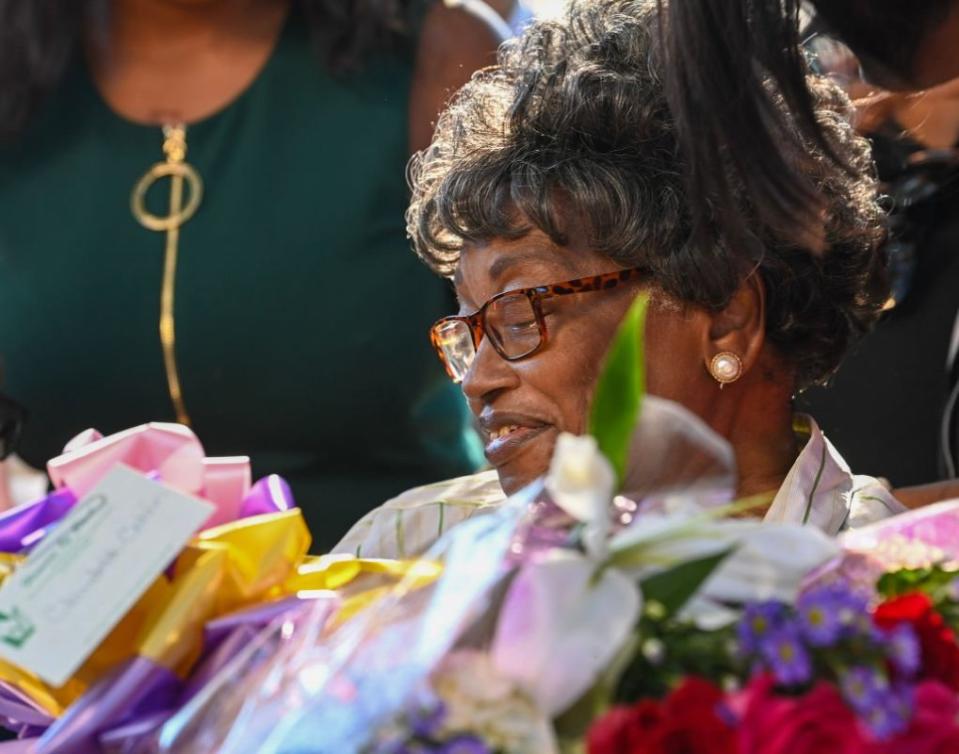
Julie Bennett/Getty Images
Nine months before Rosa Parks refused to give up her seat on a bus in Montgomery, Alabama in 1955, 15-year-old Claudette Colvin refused to move to the back of a bus to give up her seat to a white person. When the bus driver ordered her to get up, she refused to say she had paid her fare and it was her constitutional right. She was arrested. Colvin said to NPR, "All I remember is that I was not going to walk off the bus voluntarily," Colvin says. Colvin later became the main witness in the federal lawsuit Browder v. Gayle, which ended segregation on public transportation in Alabama.
Related: Black History Facts
Robert Sengstacke Abbott
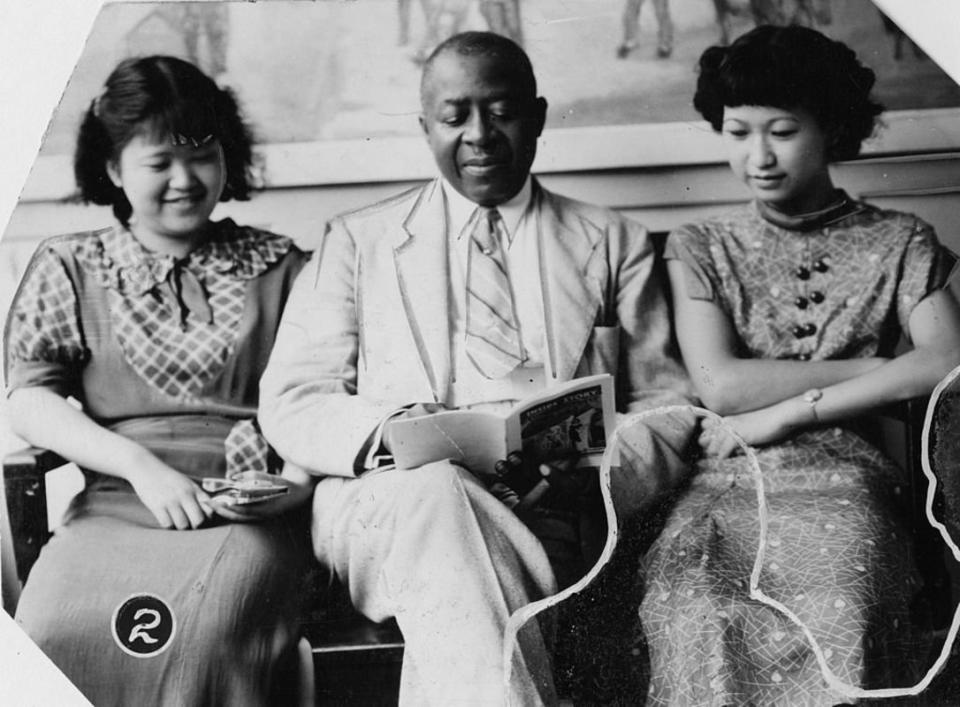
The Abbott Sengstacke Family Papers/Robert Abbott Sengstacke/Getty Images
Abbott laid the foundation for what would eventually birth many Black publications including Ebony, Jet, Essence, Black Enterprise, Right On!, Sheen Magazine, and more. In 1905, Abbott founded the Chicago Defender, a weekly newspaper. The paper started out with a 25-cent investment and a four-page pamphlet, increasing circulation with every edition. The Defender played an important role in encouraging African Americans to migrate from the south for better economic opportunities. The success of the paper made Abbott one of the first African American self-made millionaires.
Related: Black Booksellers Recommend 25 Books to Read During Black History Month
Shirley Chisholm
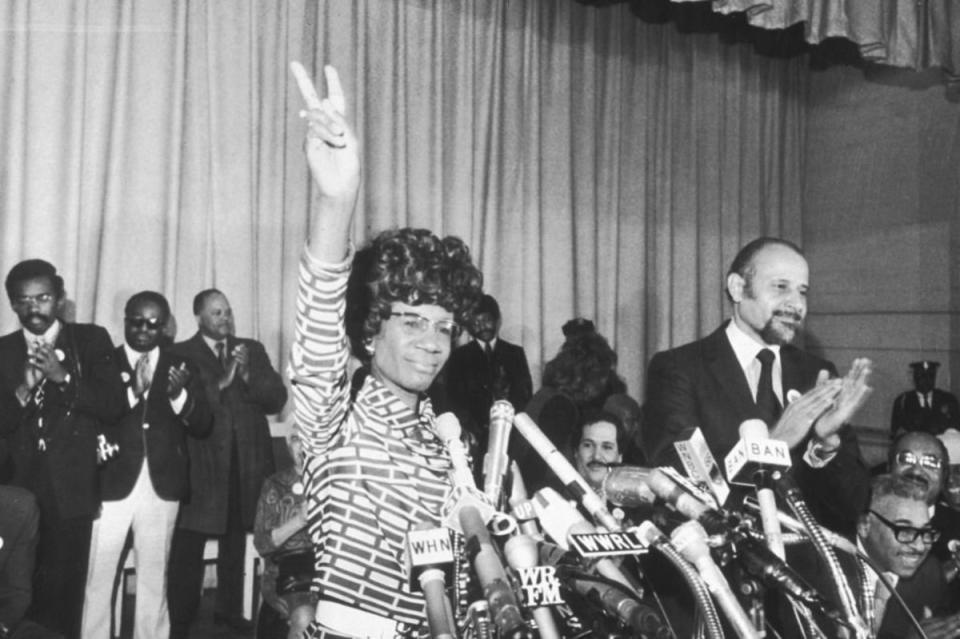
Don Hogan Charles/New York Times Co./Getty Images
Chisholm kicked the door in for African American women holding major roles in government. She first served as an educational consultant for New York City’s Bureau of Child Welfare and ran for New York State Assembly in 1964. Chisholm was elected in 1968 as the first African American Congresswoman. She served from 1969 to 1983 representing New York’s 12th District. She later became one of the founding members of the Congressional Black Caucus. Chisholm made more history in 1972 by becoming the first African American woman of a major political party to run for the Democratic party’s presidential nomination. Her campaign slogan: "Unbought and Unbossed." Vice President Kamala Harris even paid tribute to Chisholm in her presidential campaign announcement by using a similar logo to Chisholm's.
Johnson H. Johnson
Hailed as one of the most influential Black media publishers, Johnson got his start working for Supreme Life Insurance Company collecting weekly news clippings for his manager, which sparked his idea for his first publication, Negro Digest. In 1942, with a $500 loan and $6,000 raised through subscriptions, Johnson launched his dream project which later became Black World. Three years later, he launched Ebony. In 1951, he created Jet, a weekly news magazine featuring the Jet Beauty of the Week. Johnson also expanded from magazines into book publishing and owned Fashion Fair Cosmetics, the premier cosmetics company that catered to darker skin tones before there was Fenty.
Related: Get Ready for Freedom Day! Here Are 30 Ways To Celebrate Juneteenth
Dorothy Height
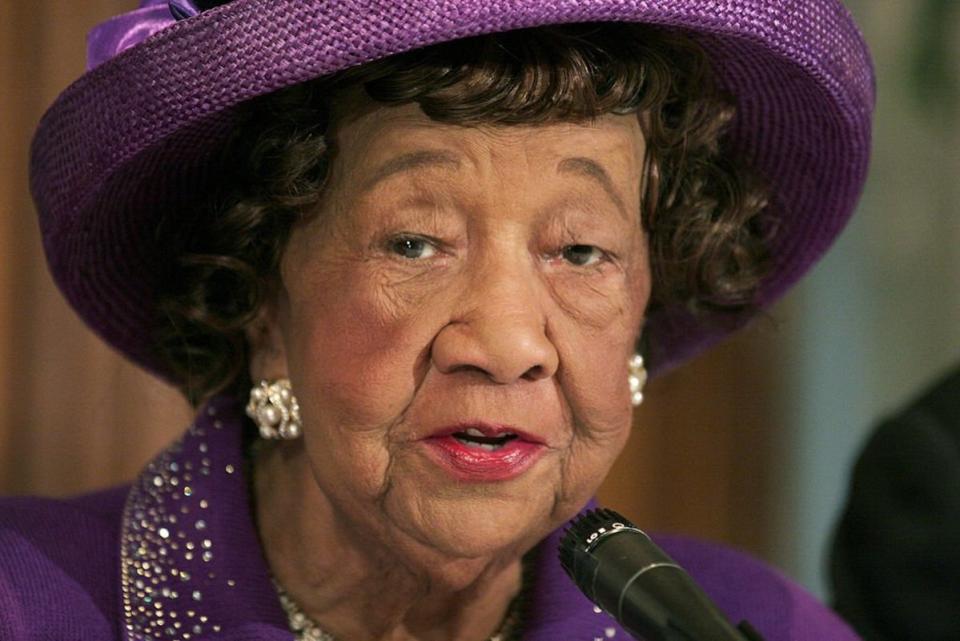
Chip Somodevilla/Getty Images
Height has been called the matriarch of the civil rights movement and often worked behind the scenes. After receiving two degrees from New York University in the 1930s, Height worked for the New York City Welfare Department and then became the assistant executive director of the Harlem Y.M.C.A. She was involved in anti-lynching protests, brought public attention to the exploitation of African-American women working in "slave markets," and escorted First Lady Eleanor Roosevelt to the National Council of Negro Women, a council she served on for more than 40 years. In the 1950s, she lobbied President Dwight D. Eisenhower to take an aggressive stance on school desegregation issues. Height also worked with Martin Luther King Jr. and she stood on the platform with him when he delivered his famous "I Have a Dream" speech in August 1963.
Related: 120 Inspiring Quotes for Black History Month
Don Cornelius
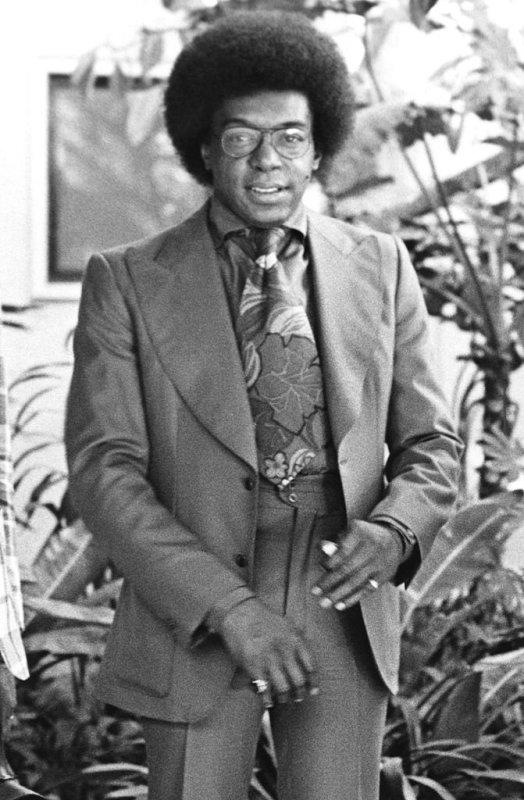
Michael Ochs Archives/Getty Images
With a distinctive baritone and demanding stature, Don Cornelius helped to shift Black culture into the spotlight with the creation of the show Soul Train. The “Hippest Trip in America” was picked up for national syndication in 1971 with its first episode featuring performers Gladys Knight & The Pips, Eddie Kendricks, Bobby Hutton, and Honey Cone. The dance show exposed Black acts to a larger national audience, featuring Soul Train dancers, the Scramble Board, the Soul Train Line, and Cornelius’ famous catchphrase “Love, Peace, and Soul.” The combination of performances and interviews proved to be a formula that worked. The show is one of the longest-running syndicated shows that ran until 2006.
Alice Coachman
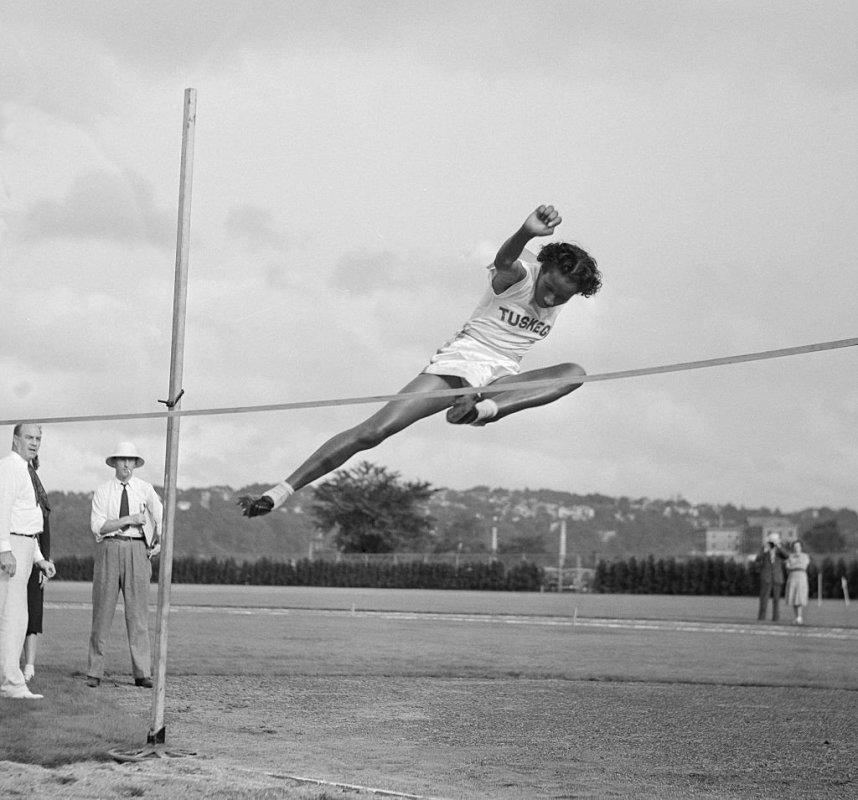
Getty Images
Alice Coachman became the first African American woman from any country to win an Olympic Gold Medal at the 1948 Summer Olympics in London. She set the record for the high jump at the Olympics, leaping to 5 feet and 6 ⅛ inches. Four years later, she became the first Black female athlete to endorse an international consumer product when she signed on as a Coca-Cola spokesperson. Over the course of her career, she won 34 national titles. She was officially inducted into the National Track-and-Field Hall of Fame in 1975 and the U.S. Olympic Hall of Fame in 2004.
Maria P. Williams
The landscape of Hollywood has the work of many Black women from Ava DuVernay, Issa Rae, and Shonda Rhimes to name a few. Maria P. Williams paved the way as the first Black woman to produce, write, and act in her own silent crime movie in 1923, The Flames of Wrath. To distribute the film, she formed the Western Film Producing Company and Booking Exchange with her husband. The former Kansas City teacher was also an activist, and detailed her leadership skills in her 1916 book, My Work and Public Sentiment.
Related: Black History Month Through the Years: Every Black History Month Theme Since 1928
Ethel Waters
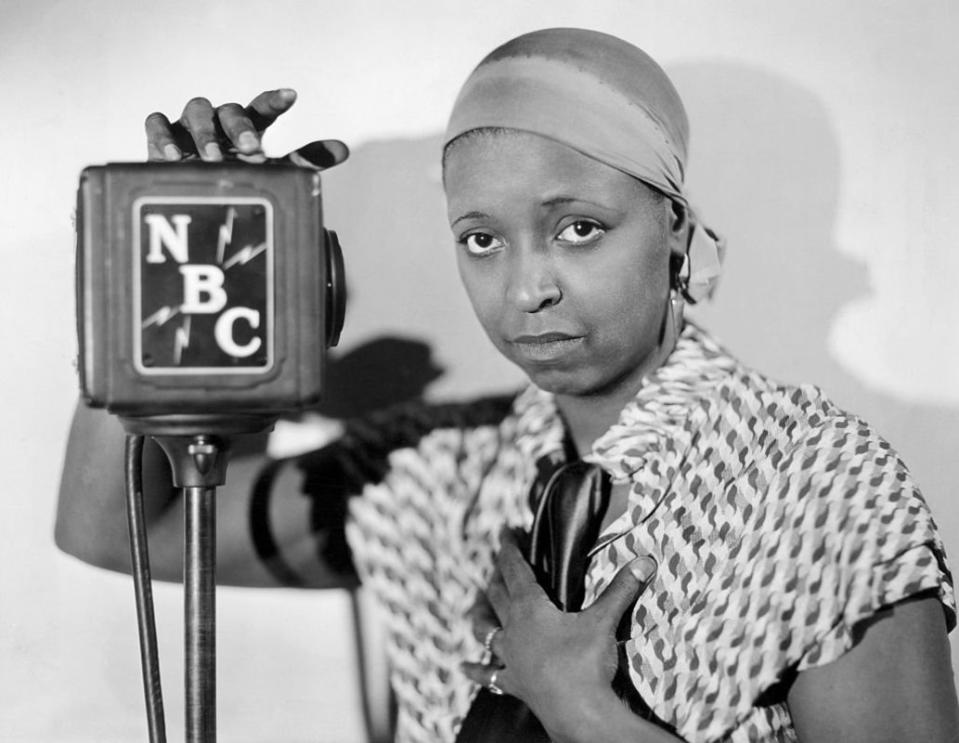
Getty Images
Ethel Waters first entered the entertainment business in the 1920s as a blues singer, before making history. Waters was the first to integrate Broadway appearing in Irving Berlin’s As Thousands Cheer and eventually became the highest-paid performer on Broadway. In addition to becoming the first African American to star in her own television variety show in 1939, The Ethel Waters Show. She was nominated for an Academy Award for Best Supporting Actress for the film Pinky in 1950. Also in 1950, Waters was the first Black actress to star in a television series, Beulah, which aired on ABC. In 1962, she became the first African American woman to be nominated for a Primetime Emmy Award for Outstanding Single Performance by a Leading Lady for the show Route 66.
Bayard Rustin
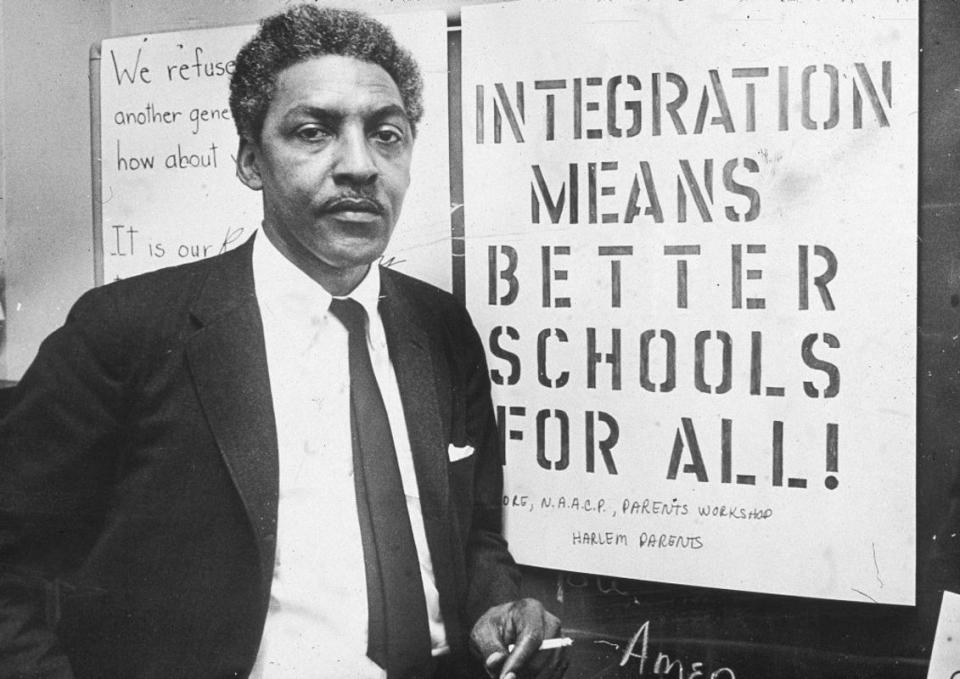
Patrick A. Burns/New York Times Co./Getty Images
Reverend Dr. Martin Luther King Jr. is usually credited for the iconic March on Washington in August 1963, but it was actually Rustin who organized the historical event. The march brought more than 200,000 peaceful protestors of varying races and religions together to hear King’s “I Have a Dream” speech. As a gay man who had controversial ties to communism, he was considered too much of a liability to be on the front lines of the movement so he worked in the background. Rustin also helped King found the Southern Christian Leadership Conference.
Related: 75 Best Foot-tapping, Hand-raising Gospel Songs
Ruby Bridges
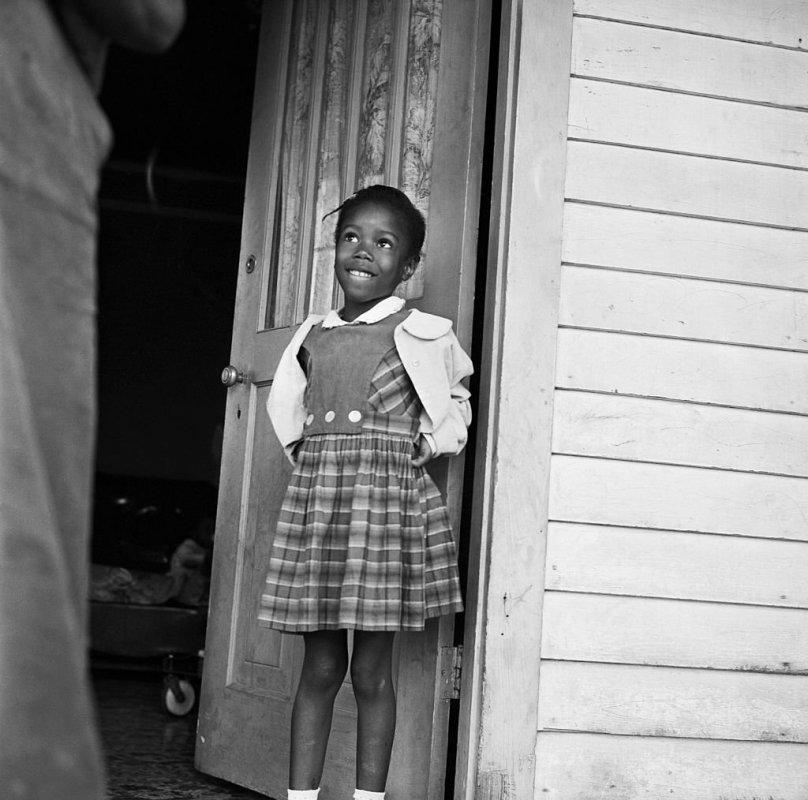
Getty Images
Ruby Bridges was the first African American child to desegregate the all-white William Frantz Elementary School in Louisiana during the New Orleans school desegregation crisis on November 14, 1960. She was six years old at the time. Despite intimidation and discrimination, Bridges never missed a day of school. Bridges has written two books on her experience and has been honored with the Carter G. Woodson Book Award. In 1999, she also set up The Ruby Bridges Foundation to promote equality in education. Bridges is also a lifelong activist for racial equality. In 1999, Ruby established The Ruby Bridges Foundation to promote tolerance and create change through education. In 2000, she was made an honorary deputy marshal in a ceremony in Washington, DC.
Gordon Parks
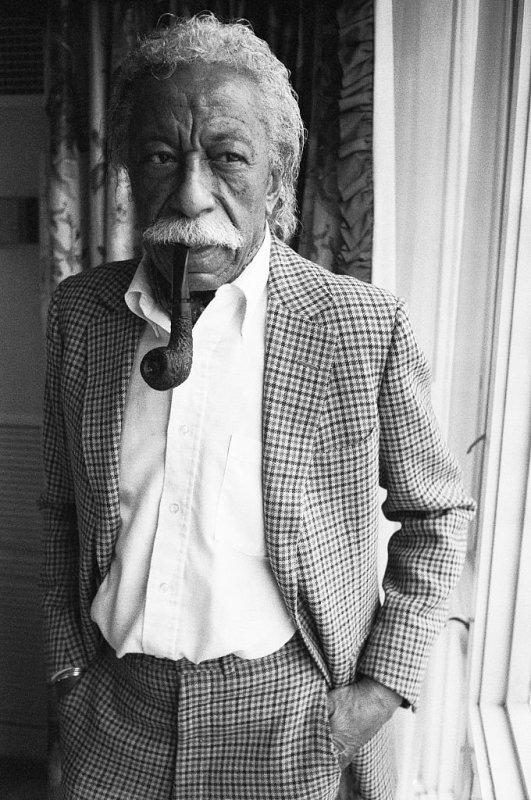
Shepard Sherbell/CORBIS SABA/Corbis via Getty Images
Gordon Parks was one of the most prolific figures behind a camera in the 20th century. His photojournalism from the 1940s through the 1970s captured aspects of American life including issues like civil rights, poverty, and race relations. Parks was the first African American on the staff of LIFE magazine, and he was also responsible for some of the most beautiful imagery in the pages of Ebony, Glamour, and Vogue. He later went on to co-found Essence magazine. In 1969, Parks became the first African American to write and direct a major Hollywood studio feature film, The Learning Tree, based on his bestselling semi-autobiographical novel. His next film, Shaft, helped to shape the blaxploitation era in the '70s. Parks once said: "I saw that the camera could be a weapon against poverty, against racism, against all sorts of social wrongs. I knew at that point I had to have a camera."
Related: 35 Inspiring, Joyful, and Moving Movies You Should Stream for Black History Month
Madam C.J. Walker
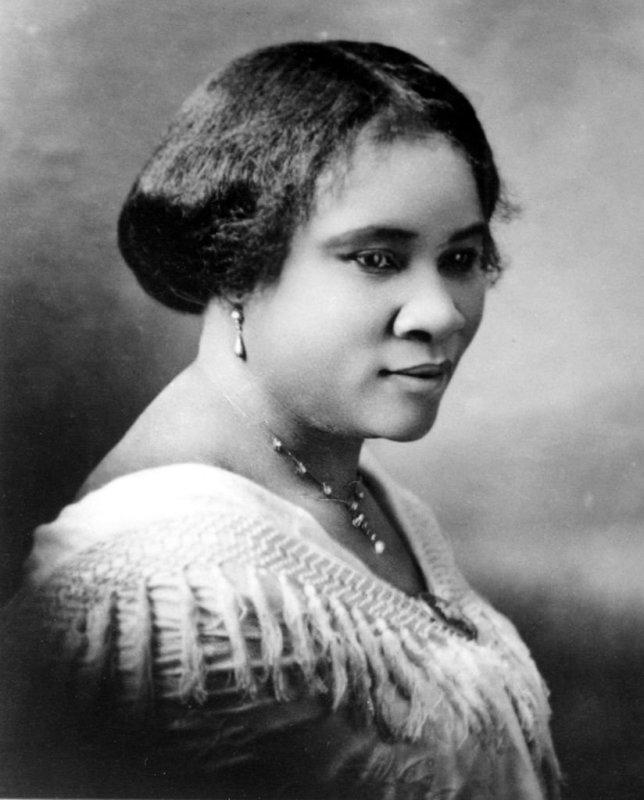
Addison N. Scurlock/Michael Ochs Archives/Getty Images
Madam C.J. Walker was the first Black female millionaire in America. She made her fortune by creating a homemade line of hair care products for Black women. Born Sarah Breedlove, she was inspired to create hair products after experiencing a scalp disorder and hair loss. It led to the creation of the Walker system of hair care. She built an empire selling products directly to Black women, then employing others to sell them. She used her fortune to fund scholarships for women at the Tuskegee Institute and donated to the NAACP, the Black YMCA, and other charities. In fact, Netflix's historical drama Self-Made: Inspired by the Life of Madam C.J. Walker gives insight into her story.
Annie Turnbo Malone
While Madam C.J. Walker may be known as the first Black female millionaire, she didn’t get there without the likes of her employer Annie Turnbo Malone, who was also a millionaire. Her contributions to the hair care industry have been overshadowed by Walker’s success. Malone was a chemist and entrepreneur. She developed a hair product to straighten African American women’s hair without damaging it, and eventually created a line of hair care and beauty products. She and her assistants sold the products door to door giving demonstrations before business took off after the World Fair in 1904. Malone established Poro College, a cosmetology school and training center in St. Louis in 1918. She had thirty-two branches of the school throughout the country in the mid-50s.
Alvin Ailey
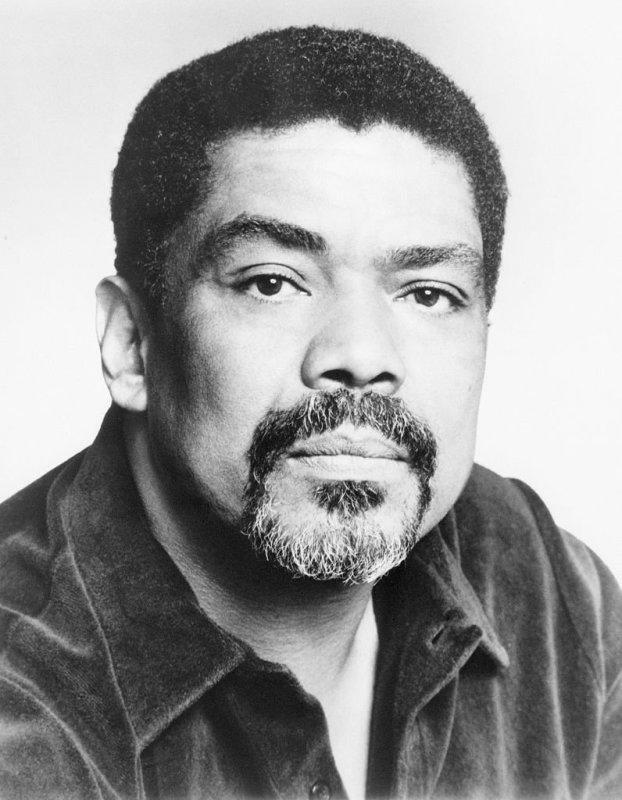
Getty Images
Alvin Ailey was an acclaimed dancer and choreographer who earned global recognition for his impact on modern dance. After honing his technique at the Lester Horton Dance Theater and acting as its director until its 1954 disbandment, Ailey had the desire to choreograph his own ballets and works that differed from the traditional pieces of the time. This inspired him to start the Alvin Ailey American Dance Theater in 1958, a multiracial troupe that provided a platform for talented Black dancers and traveled around the world. His most popular piece, "Revelations," is an ode to the Southern Black Church. He died in 1989, but in 2014, he posthumously received the Presidential Medal of Freedom, the country’s highest civilian honor, in recognition of his contributions and commitment to civil rights and dance in America.
Ella Baker
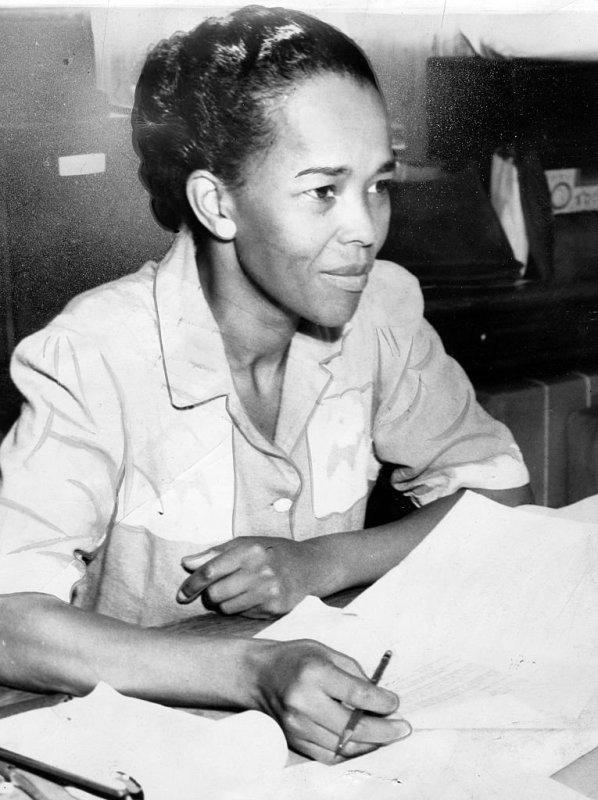
Afro American Newspapers/Gado/Getty Images
Baker was a major force in shaping the development of the civil rights movement. She was a field secretary and branch director for the NAACP and also co-founded an organization that raised money to fight Jim Crow laws. Additionally, Baker was a key organizer for Martin Luther King Jr.'s Southern Christian Leadership Conference (SCLC). One of her biggest contributions to the movement was the Student Nonviolent Coordinating Committee (SNCC), which prioritized nonviolent protest, assisted in organizing the 1961 Freedom Rides, and aided in registering Black voters. The Ella Baker Center for Human Rights continues to carry on her legacy.
Related: February Is Black History Month! What Are the Black History Month Colors and What Do They Mean?
Mae Jemison
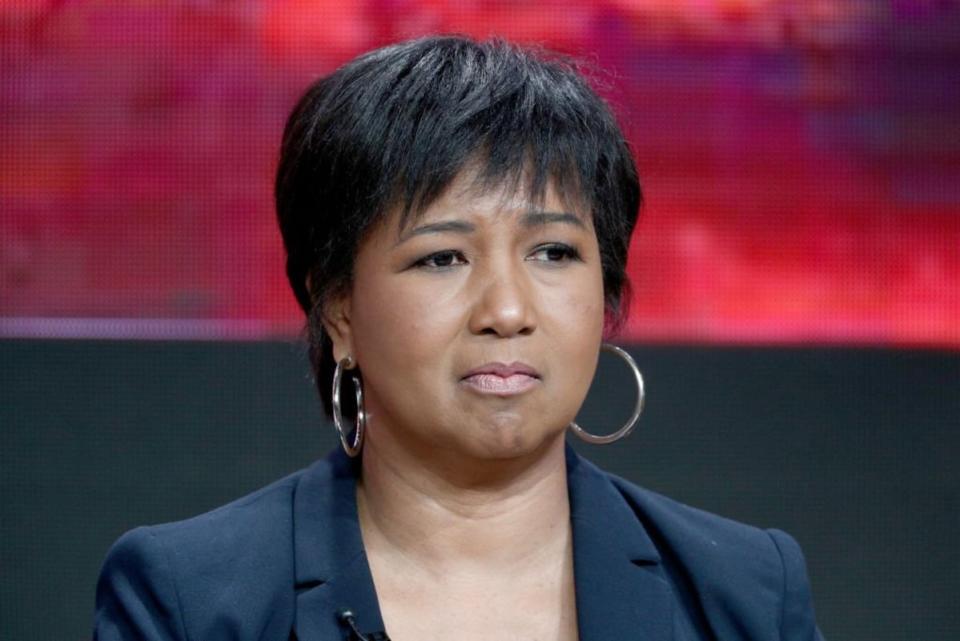
Frederick M. Brown/Getty Images
Mae Jemison was the first African American woman who orbited into space aboard the shuttle Endeavour in 1992. The team made 127 orbits around the earth over the course of eight days. Jemison is also a physician, teacher, a Peace Corps volunteer, and president of a tech company, the Jemison Group. She continues to work towards the advancement of young women of color getting more involved in technology, engineering, and math careers.
Sister Rosetta Tharpe
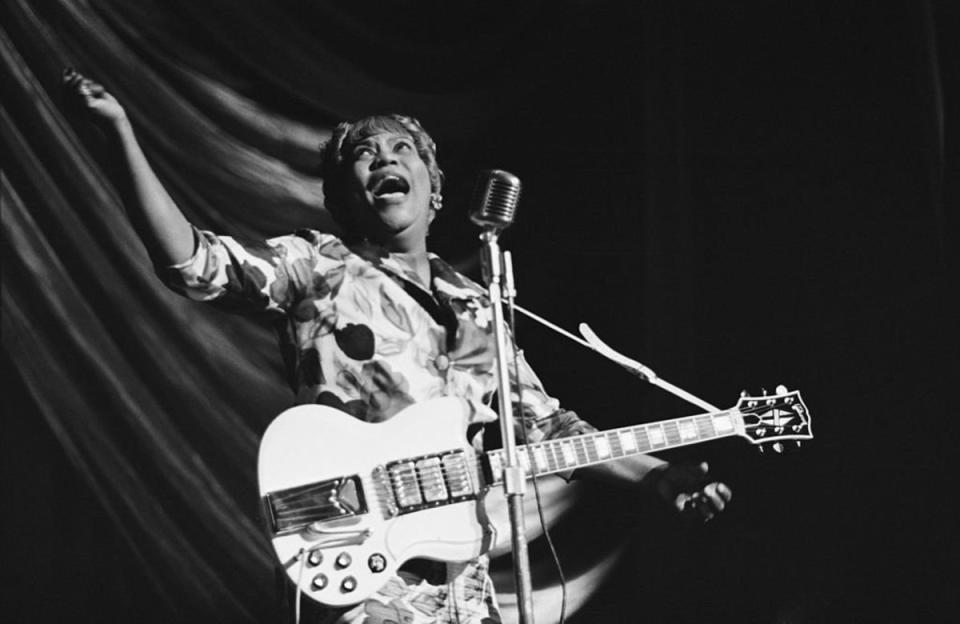
Tony Evans/Getty Images
Before Little Richard, Chuck Berry, Keith Richards, Elvis, or Johnny Cash strummed their guitars, or banged out a melody on the piano, Sister Rosetta Tharpe created a musical style that would take the world by storm. Hailed as the godmother of rock and roll, Tharpe is both the originator of pop gospel and she brought an emotionally charged dimension to the electric guitar, creating the foundation of rock and roll. Tharpe is credited with introducing the spirituality of the gospel into the secular world of rock ‘n’ roll. Little Richard called her his greatest influence and Chuck Berry said that his entire career was just “one long Rosetta Tharpe impersonation.” In 1969, she was nominated for a Grammy for Best Gospel Performance for the album Precious Memories.
Max Robinson
Max Robinson became the first Black person to anchor the nightly network news in 1978. Robinson got his start in 1959 when he was hired to read the news at a station in Portsmouth, Virginia. The station owner hired him as a news-reader, but was told he couldn’t show his face. When Robinson protested, he was fired. He moved to Washington to work as a reporter, and later co-anchored the evening news making him the first Black anchor in a major U.S. city. ABC News took notice and named him one of three co-anchors on World News Tonight. He was also one of the 44 founders of the National Association of Black Journalists (NABJ).
Dr. Patricia Bath
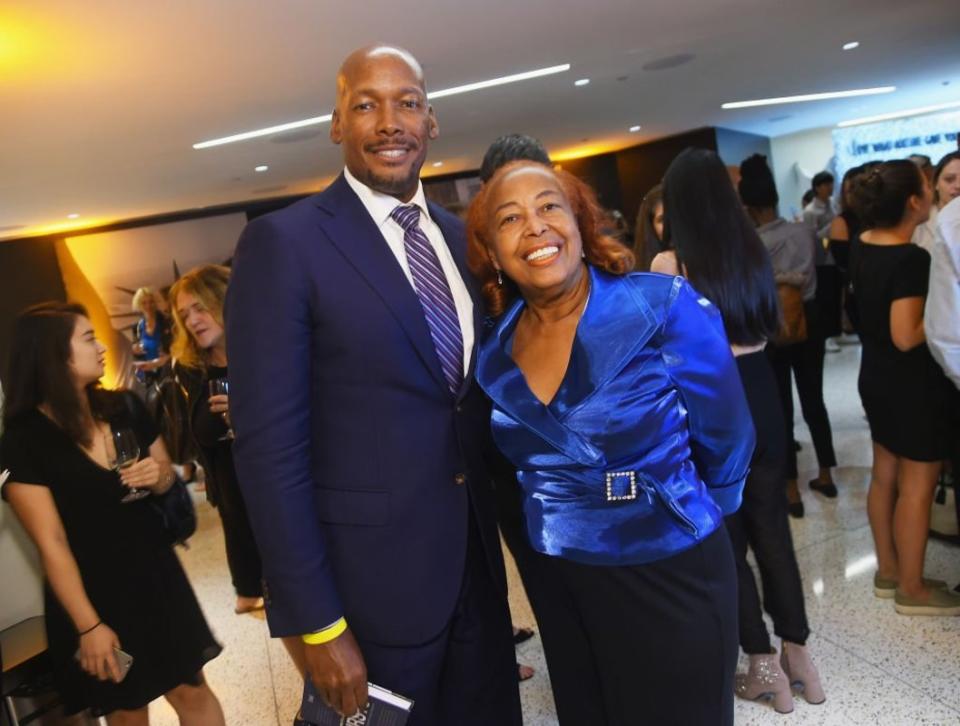
Ben Gabbe/Getty Images for TIME
Dr. Patricia Bath, an ophthalmologist and laser scientist, was not only the first female African-American doctor to patent a medical device but also the first person to invent a surgery that greatly advanced treatment for cataracts. Dr. Bath invented the Laserphaco Probe in 1981 which used lasers to treat cataracts more precisely and less painfully. The invention was able to recover vision for people who had been blind or vision impaired for decades.
Ethel L. Payne
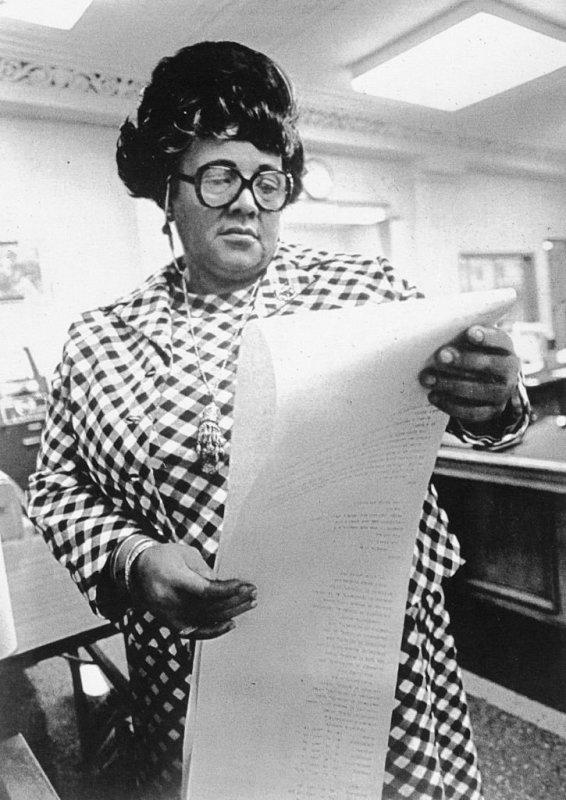
Getty Images
Ethel L. Payne is known as the “First Lady of the Black Press.” She combined activism with journalism during the 1950s and 1960s. Some of the iconic figures of history Payne interviewed include Rev. Dr. Martin Luther King, Jr., President John F. Kennedy, and Nelson Mandela, among several other noteworthy figures. In 1972, CBS hired Payne as a radio and television commentator and she became the first Black woman to hold such a position. Payne is also the only African-American out of four female journalists honored by the U.S. Postal Service on a “Women in Journalism” stamp.
Fritz Pollard
Fritz Pollard was the first African American head coach in the National Football League (NFL). He was 5 feet, 9 inches and 165 pounds, what most would consider small for the sport. He attended Brown University and was the school’s first Black player. After serving in World War I, he joined the Akron Pros of the American Professional Football Association, which later became the NFL. He was one of only two Black players in the league. In 1921, while still playing, the team named him its coach. Over the course of his career he coached four different teams and founded a Chicago football team of all African American players. He was inducted into the Pro Football Hall of Fame in 2005.
Maya Angelou
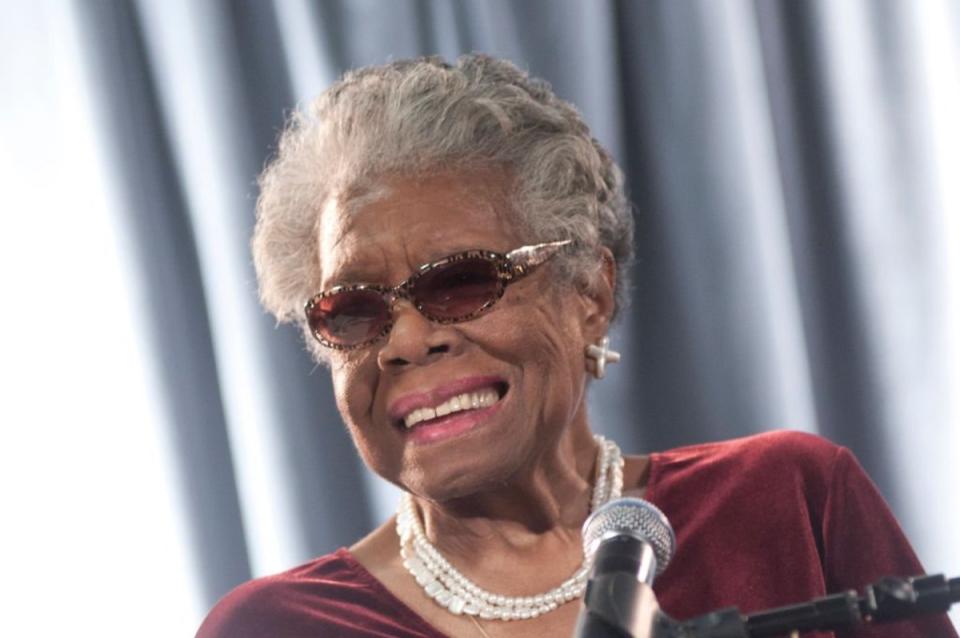
Kris Connor/Getty Images
A prolific writer and poet, and activist known for her lyrical prose and regal speaking voice, Angelou was the first Black woman to appear on a quarter. Angelou rose to international prominence after the publication of her groundbreaking autobiography, "I Know Why the Caged Bird Sings," with its account of rape and racism in the segregated South. The recipient of more than 30 honorary degrees, Angelou read On the Pulse of Morning at the 1993 inauguration of former President Bill Clinton. Angelou's reading was the first time an African American woman wrote and presented a poem at a presidential inauguration.
Henrietta Lacks
After being diagnosed with cervical cancer at The Johns Hopkins Hospital in 1951, a sample of Lacks's cancer cells was taken without her consent by a researcher. She died later that year at 31 years old. Her cells would go on to advance medical research for years to come, as they had the unique ability to double every 20-24 hours. "They have been used to test the effects of radiation and poisons, to study the human genome, to learn more about how viruses work, and played a crucial role in the development of the polio vaccine," Johns Hopkins said.
Wally Amos
As you stroll the cookie aisle in the grocery, the familiar yellow box filled with chocolate chip cookies that says Famous Amos Cookies was created by Wally Amos. He first began selling cookies in 1975, after receiving some start-up money from several close friends, including the late singer Marvin Gaye, to open a store on Sunset Boulevard in Los Angeles. By the early 1980s, demand was rising, so Amos decided to mass-produce the cookies. He also created Uncle Wally’s Muffins and the Cookie Kahuna.
Related: Martin Luther King, Jr. Facts
Ida B. Wells
Ida B. Wells was an African American journalist, abolitionist and feminist who led an anti-lynching crusade in the United States in the 1890s. She owned the newspaper The Memphis Free Speech and Headlight and was a vocal critic of segregated schools. Later, she became active in the anti-lynching campaign in 1892 after multiple friends were lynched, according to the National Park Service, even visiting the White House to advocate for reforms. In 1896, she formed the National Association of Colored Women. Wells is also considered a founding member of the National Association for the Advancement of Colored People (NAACP). Most recently, Wells was immortalized with a Barbie doll modeled after her.
Jesse Owens
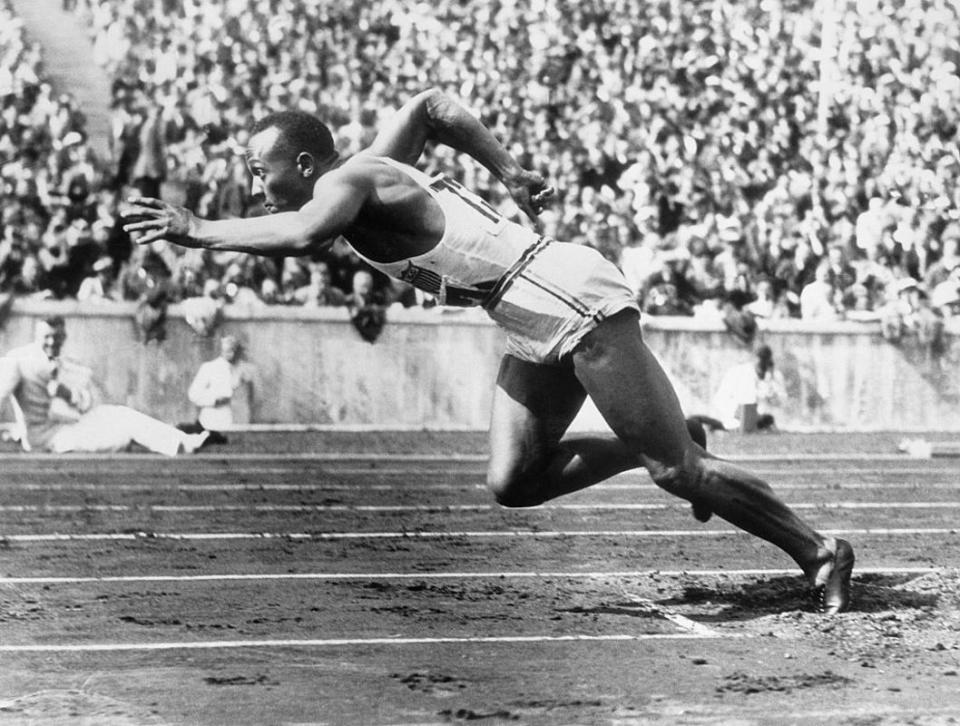
Getty Images
Owens was a track-and-field athlete who set a world record in the long jump at the 1936 Olympic Games in Berlin and went unrivaled for 25 years. He was the first American to win four gold medals at the Olympics. That year he won medals in the 100- and 200-meter dashes, along with the 100-meter relay and other events off the track. In 1976, Owens received the Presidential Medal of Freedom and was posthumously awarded the Congressional Gold Medal in 1990.
Related: 45 Frederick Douglass Quotes To Celebrate His Incredible Legacy
Bessie Coleman
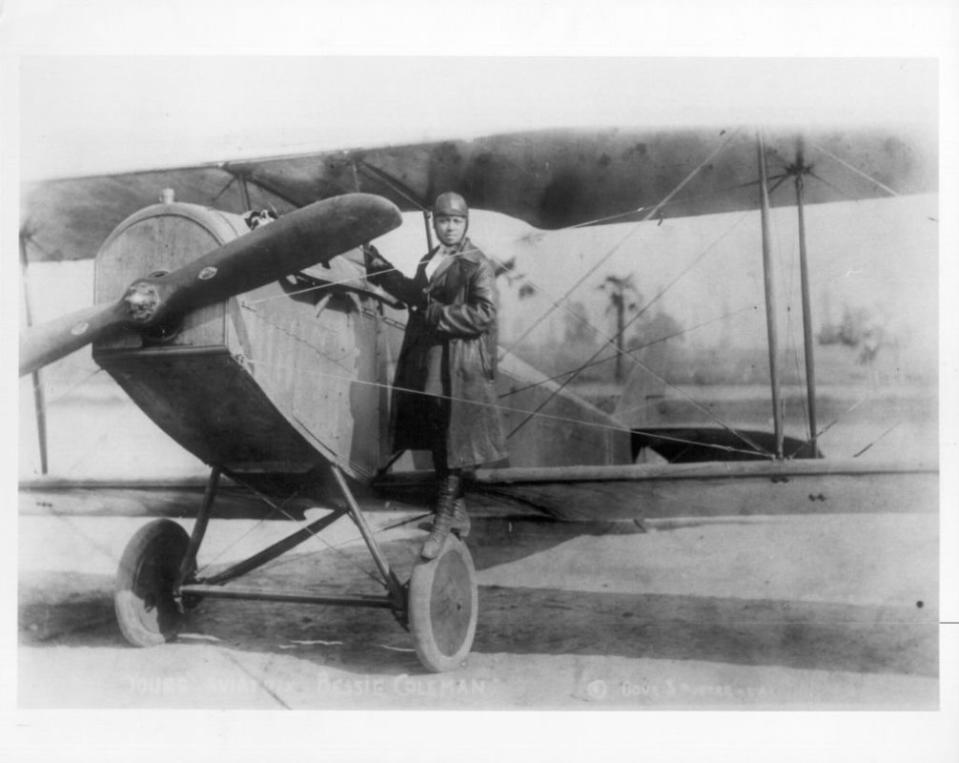
Michael Ochs Archives/Getty Images
Coleman is the first licensed Black pilot in the world. Though history has favored Amelia Earhart or the Wright brothers, Coleman went to flight school in France in 1919, and received her pilot license in 1921 inspiring diversity in the aviation field. In 1922, she performed the first public flight by a Black woman. She was famous for doing “loop-the-loops,” and making figure eights in an airplane. In 1995, the Bessie Coleman Stamp was created in her honor.
Rebecca Lee Crumpler
Rebecca Lee Crumpler was the first Black female doctor in the United States. After attending the prestigious Massachusetts private school West-Newton English and Classical School, she worked as a nurse for eight years until applying to medical school in 1860 at the New England Female Medical College. PBS reported that she worked as a physician for the Freedmen's Bureau for the State of Virginia. She later practiced in Boston's predominantly Black neighborhood at the time, Beacon Hill, and published A Book of Medical Discourses in Two Parts.
Marsha P. Johnson
Marsha P. Johnson is a celebrated veteran of the 1969 Stonewall Inn protests in New York, an influential transgender activist, and a force to be reckoned with in the gay liberation movement. Johnson, a Black transwoman and activist, was at the forefront of the LGBTQ movement. In addition to being the co-founder of STAR, an organization that housed homeless queer youth, Johnson also fought for equality through the Gay Liberation Front. There’s a Netflix documentary that brought Johnson's story to life with the documentary, The Death and Life of Marsha P. Johnson by David France that highlights the impact she had.
Next, here are some activities to get your children involved in Black History Month.

